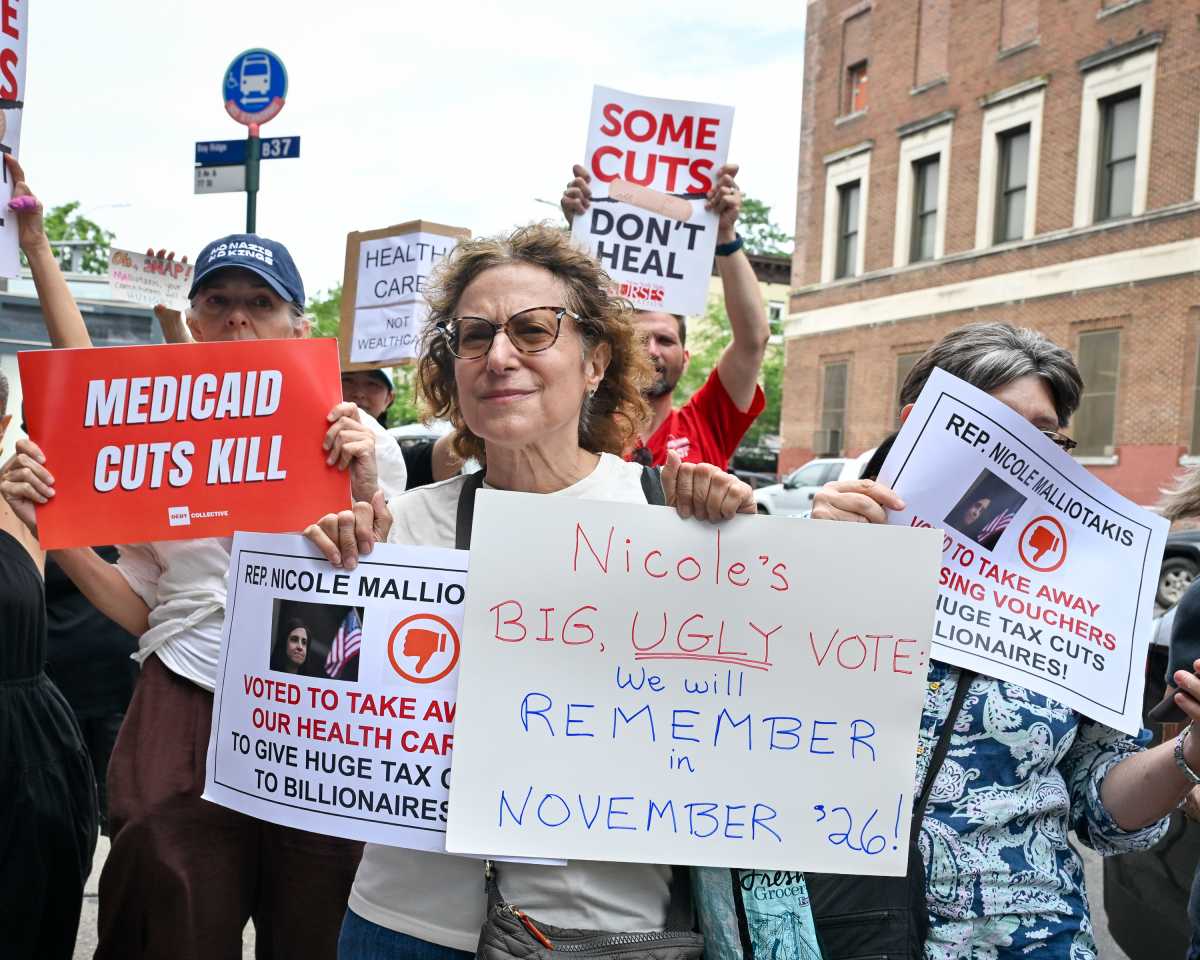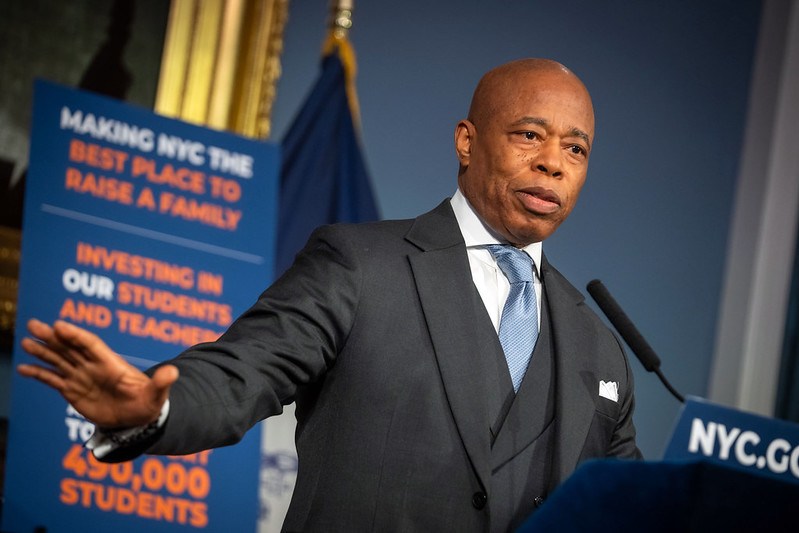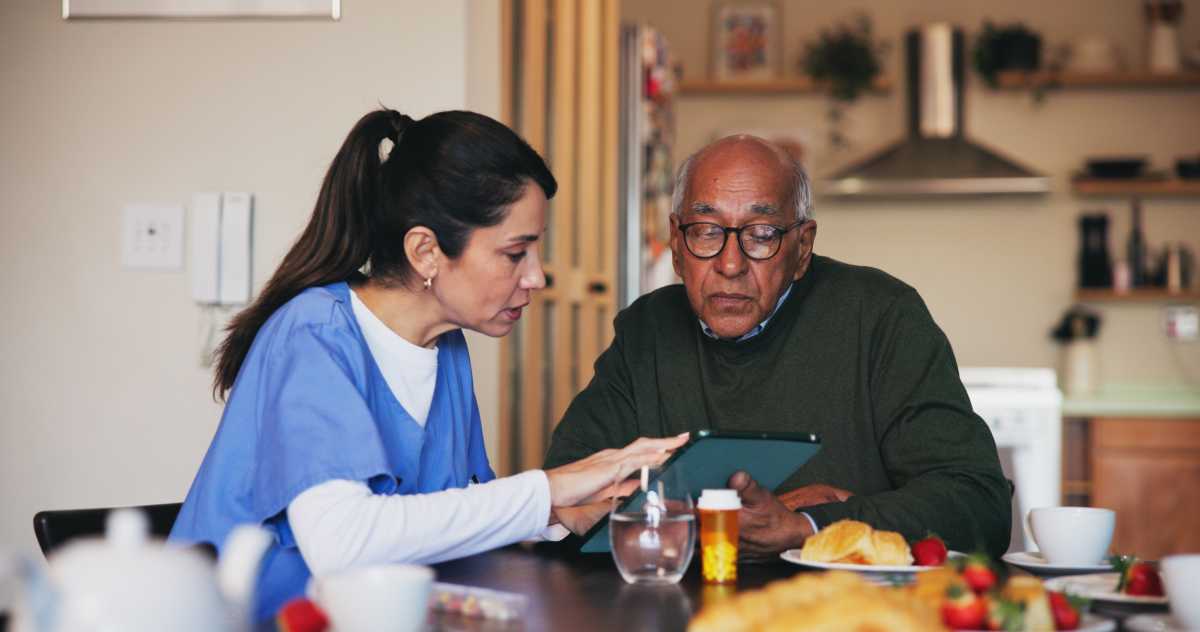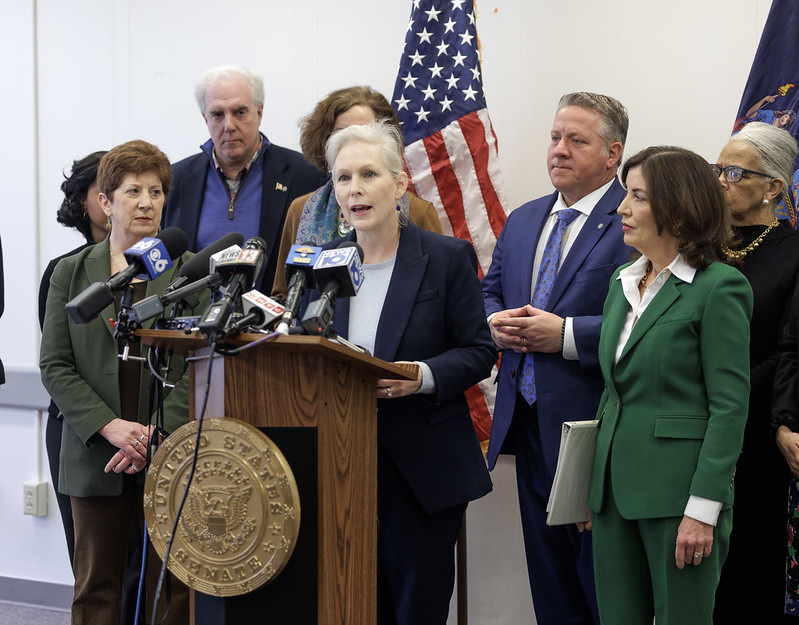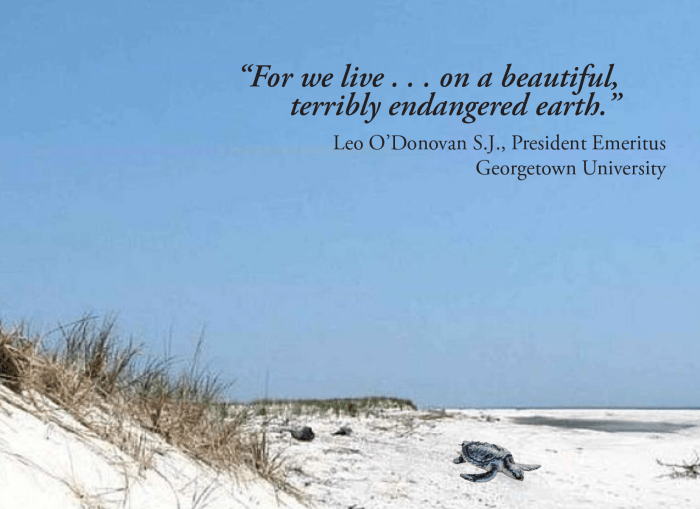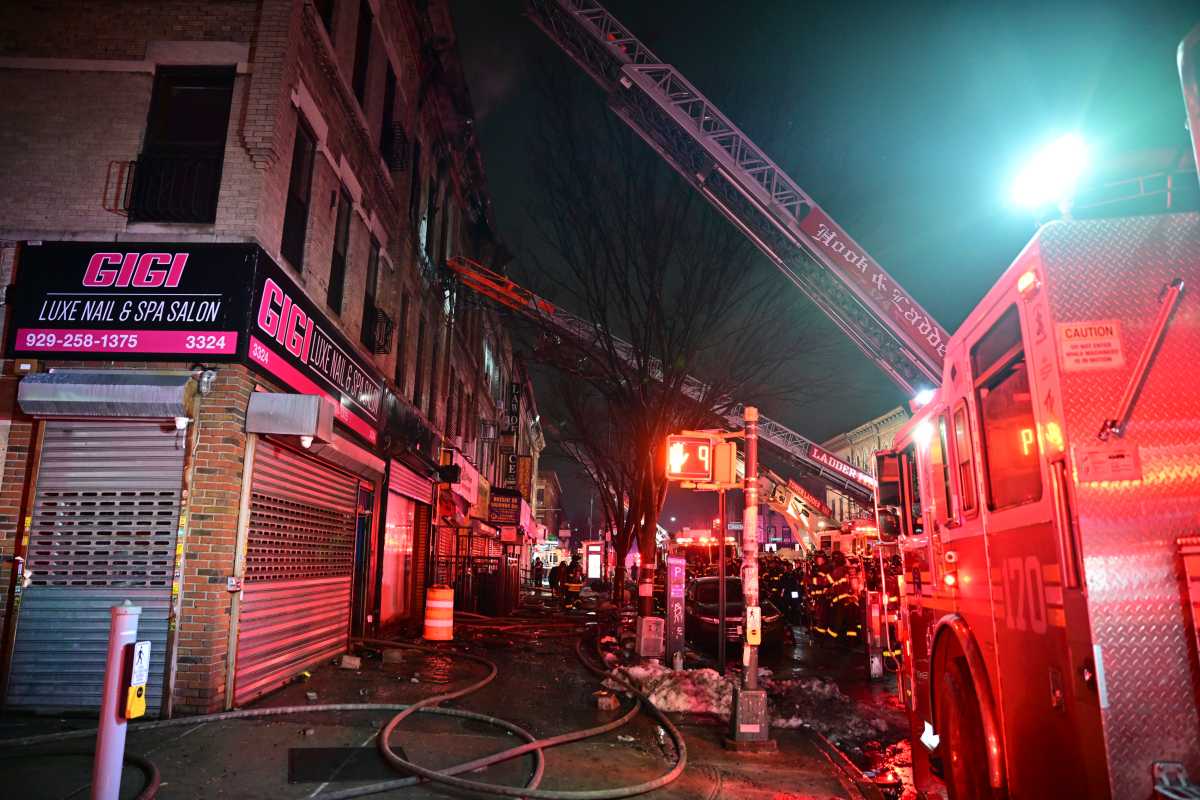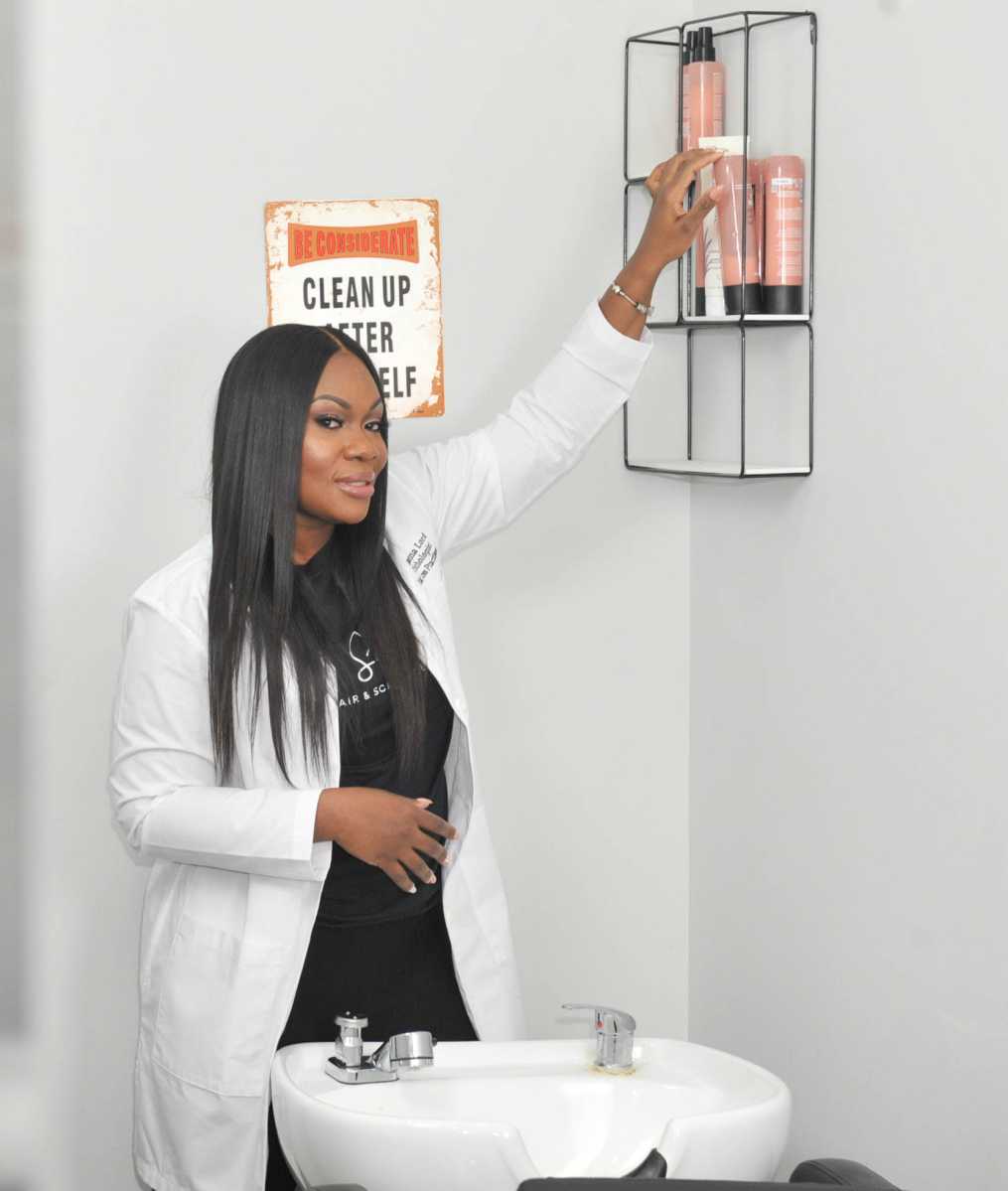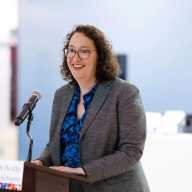Days after President Donald Trump signed the “Big Beautiful Bill” into law, a coalition of advocacy and political action groups rallied alongside 1199SEIU United Healthcare Workers outside U.S. Rep. Nicole Malliotakis’s office in Bay Ridge, speaking out against the drastic federal cuts to Medicare and Medicaid that could impact millions of New Yorkers.
Malliotakis is one of seven Republican representatives from New York who voted for the sweeping federal budget plan, which, among other cuts, slashes $1 trillion from Medicaid and $500 billion from Medicare over the next decade. Protestors highlighted the devastating consequences the cuts to safety net programs would have on New York’s healthcare providers, patients, employees, and communities.
An analysis by the Greater New York Hospital Association and the Healthcare Association of New York State estimates that Trump’s megabill will risk $14.4 billion in hospital-generated economic activity and over 63,000 healthcare or healthcare-related jobs.
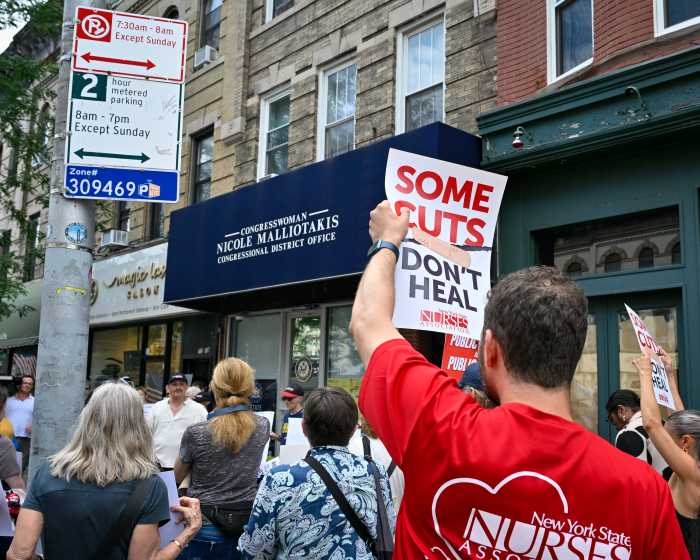
According to the analysis, 75 New York hospitals are already in financial distress, and the cuts will exacerbate the stress on an already fragile healthcare system, leading to a reduction in critically needed services, downsizing of operations, or even hospital closures.
According to the nonpartisan Congressional Budget Office, nearly 12 million Americans are expected to lose Medicaid coverage over the next decade. However, the Senate Joint Economic Committee Minority estimates that as many as 20 million Americans could lose access to Medicaid.
Jeff Peters, director of Communications for the Center for Independence of the Disabled New York, said his biggest fear was that people would unnecessarily die because the cuts would force hospitals and medical facilities to close.
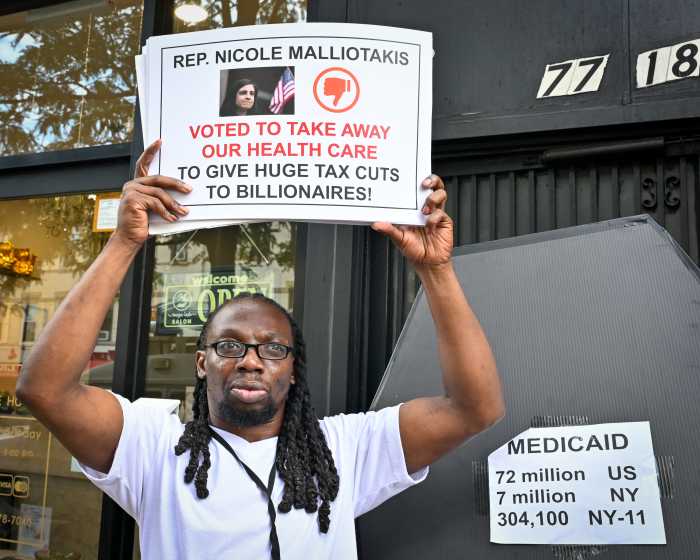
“People will be rerouted to other medical facilities. Nursing homes will close. People will not be able to get the services that they need,” he said.
Peters also pointed out that Medicaid cuts would also result in higher premiums for those on the Affordable Care Act.
Bay Ridge resident Jean Ryan is disabled and on Medicare.
“It’s kind of hard to know exactly what’s going to happen, but Medicare, they said, will definitely be affected,” Ryan said. “I need to see a lot of doctors. I need to take a lot of medications. What if they cut the subsidies for medications?”
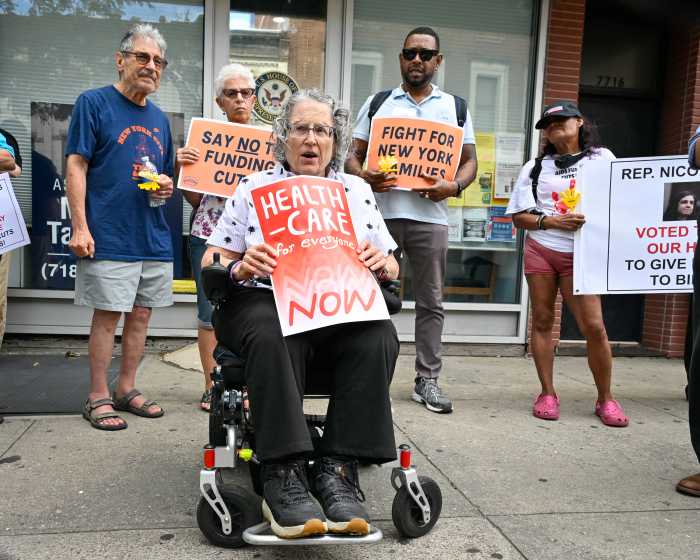
Photo by Gabriele Holtermann
Ryan, who lives alone, is concerned that the cuts will impact other necessary services, such as home care and wheelchair repairs.
“Home care is already being cut by New York State,” she said. “It’s a nightmare right now for people with disabilities who need home care. We never know when we’re going to need home care. I could need it next week.”
Addressing the crowd, Cheryl John, a political organizer for 1199SEIU United Healthcare Workers, said the cuts could accelerate the closure of safety net hospitals already on the brink of shutting down, leaving the most vulnerable New Yorkers to scramble for healthcare.
“We cannot be complacent. Our livelihood depends on this,” John said.
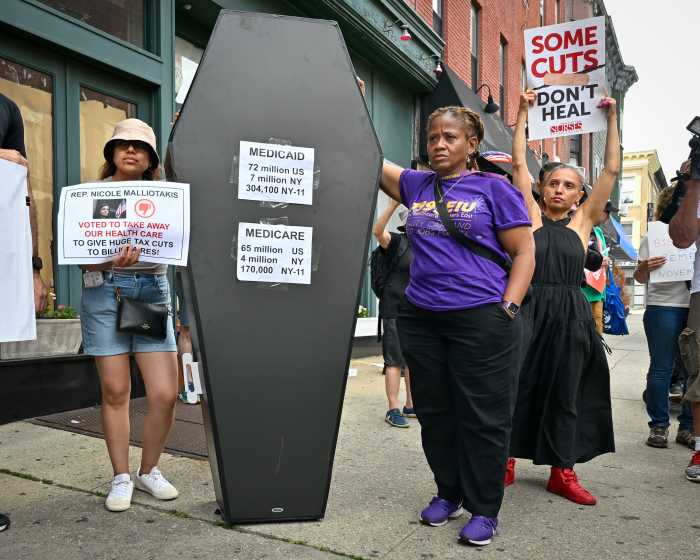
Lisa Raymond-Tolan, an organizer with Indivisible Brooklyn, emphasized the importance of keeping voters informed and engaged about the negative impact of the legislation, urging them to hold Malliotakis accountable for her vote at the polls in the 2026 midterm election, especially since some of the cuts won’t take affect until after the election.
“It’s the law of the land, except [Republicans] were sneaky, and most of the things that will impact the most people in terms of health care, are not going to go into effect till after the midterms, like a poison pill,” Raymond-Tolan said. “Between now and then, we have to keep staying on the ball and not give her what she wants, which is to have everybody forget and move on and go away and forget about her vote and how she betrayed her constituents.”
In a statement, Malliotakis said that the protestors didn’t understand that the law would fully protect seniors, the disabled, children, pregnant women, and those below the federal poverty level who rely on Medicaid.
“Congress simply took action to ensure ineligible fraudsters and illegal immigrants no longer benefit and that able-bodied young adults work, volunteer, or learn part-time. By rooting out waste, fraud, and abuse, we are actually preserving the Medicaid program for our most vulnerable citizens and ensuring hardworking families and senior citizens get the much-needed tax relief they deserve,” Malliotakis said.


